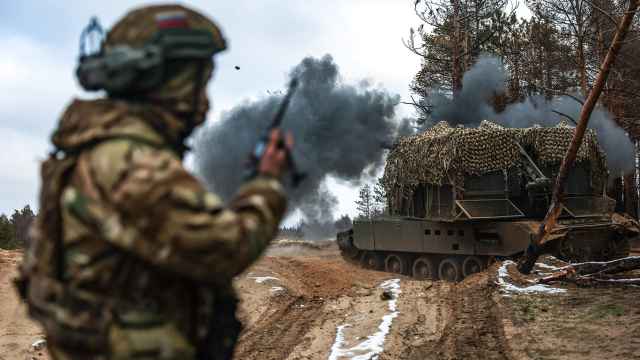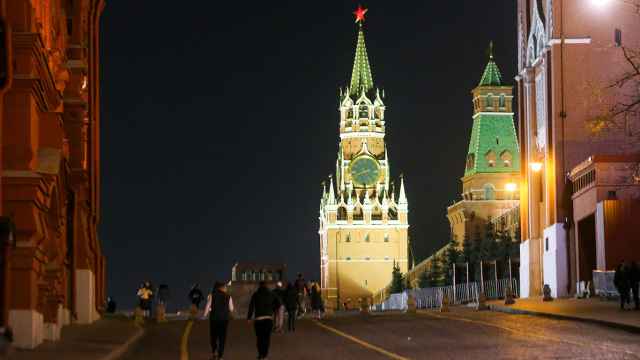The Russian Orthodox Church appears to be close to the authorities. On Christmas night, hordes of functionaries, raised in the atheist Soviet Union, jammed the halls of Moscow churches and paraded in front of television cameras. What a beautiful picture of peace and harmony between government bureaucrats and the clergy.
Ironically, one of the potentially most wide-reaching protest movements is being nurtured and led by the Moscow Patriarchate. On Dec. 22, 3,000 activists from various Russian cities got together in Moscow for the “Save the Family — Save Russia” forum to stand up to what they call “juvenile justice.” The forum is just the tip of the iceberg. To see what people think, you need to simply Google the words, and dozens of angry sites and hundreds of furious blogs will pop up before you ever see a positive web page.
There is a lot of linguistic confusion around the term “juvenile justice.” The basic idea behind the system is that underage delinquents need to be kept separate from adult criminals. But in Russia, “juvenile justice” has taken the broader meaning — a system of control over families so that the state can step in and, in extreme cases, seize a child from his or her parents. For the delegates, such interference defies traditional values and destroys families.
“Juvenile justice,” said Alexei Osipov, a professor at the Moscow Theological Academy, “is the sarcastic smile of the devil.”
According to official, hugely underreported figures, 100,000 children are abused in Russia each year, resulting in about 1,400 deaths. Statistically, most child abusers come from the juvenile’s inner circle. Nine out of 10 sexually abused children know the perpetrator in some way. Seven out of 10 are abused by family members.
Contrary to popular myth, child abusers are not an unknown pedophile who hides in the bushes, preying on unattended boys and girls, but the loved ones who pose the real threat — a father, mother or stepfather.
It has been shown that abused or neglected children are far more likely to become criminals. Those who are victims of violence in childhood later often commit violence in adulthood. The simple truth is that the road to combat street crime goes through troubled families.
The Soviet Union was a patriarchal, overprotective society. When it collapsed in the mid-1990s, so did the child protection system. Crimes against the young and the emergence of roughly 1 million homeless children have become serious problems for the country. Unless urgent steps are taken, Russia will be flooded with crime no law enforcement agency will be able to control.
So why are parents so disturbed?
The problem is not the laws the authorities propose but the authorities themselves. Russians simply do not trust them. The very idea that a government official can legally interfere with family matters and even take a child away terrifies parents.
The main question of what constitutes a “bad parent” remains blurred. There were cases when children were taken from parents solely on the grounds of poverty. This is a dangerous road that authorities are very tempted to take. It creates the illusion that the problem can be resolved without investments into social programs but by redistribution of children from troubled families to better ones or to state orphanages.
For many Russians, a bad parent is a poor parent. When Natalya Zarubina won a long legal battle in Portuguese courts in 2009 and brought her daughter home, astonishingly many Russians fought to send the girl back — which would have been clearly against the law in the West — because her mother was relatively poor.
In a country where about a third of the population live below the poverty level, the system of juvenile justice — a seemingly good and timely idea — can make a bad problem even worse. Despite the best of intentions, the attempt to save children from poverty-stricken families using bureaucratic methods is bound to fail.
The problem of protecting children is largely psychological. The public’s skittishness about overhauling the system and its feeble appeal to the so-called traditional values of the patriarchal family reflect something else: a deep-seated mistrust of the authorities that makes people resistant to any change affecting something as intimate and personal as family affairs.
Sergey Matyunin is editor of RussianLawOnline.com
A Message from The Moscow Times:
Dear readers,
We are facing unprecedented challenges. Russia's Prosecutor General's Office has designated The Moscow Times as an "undesirable" organization, criminalizing our work and putting our staff at risk of prosecution. This follows our earlier unjust labeling as a "foreign agent."
These actions are direct attempts to silence independent journalism in Russia. The authorities claim our work "discredits the decisions of the Russian leadership." We see things differently: we strive to provide accurate, unbiased reporting on Russia.
We, the journalists of The Moscow Times, refuse to be silenced. But to continue our work, we need your help.
Your support, no matter how small, makes a world of difference. If you can, please support us monthly starting from just $2. It's quick to set up, and every contribution makes a significant impact.
By supporting The Moscow Times, you're defending open, independent journalism in the face of repression. Thank you for standing with us.
Remind me later.





